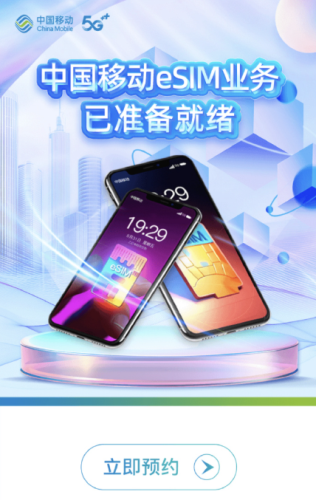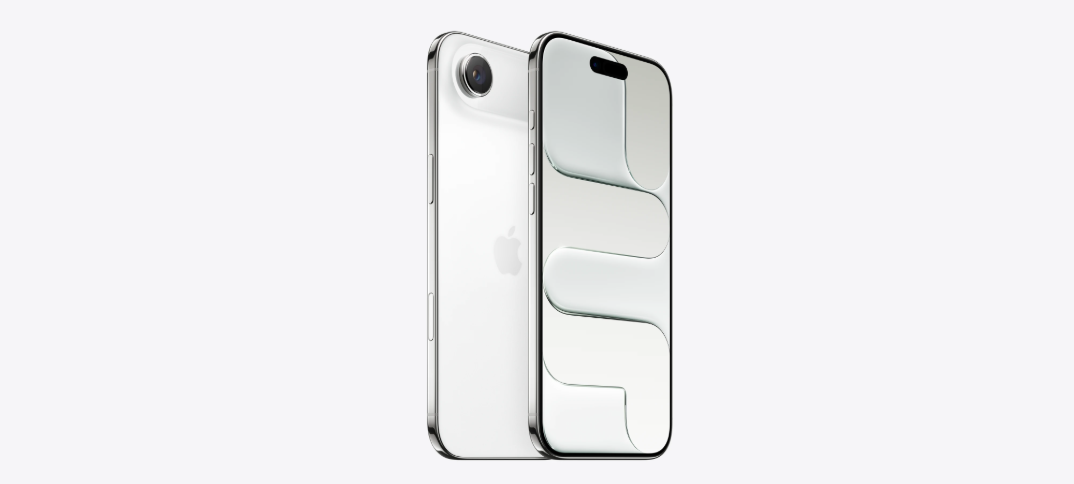Reservations for Mobile eSIM Phone Services Kick Off, Albeit with Numerous Constraints!
![]() 09/22 2025
09/22 2025
![]() 576
576
When it comes to driving the adoption of eSIM phones in China, Apple has truly outpaced all its rivals. While other manufacturers are set to follow, the initial credit undoubtedly belongs to Apple. Initially, Apple officially declared that only China Unicom supported eSIM services, but it was widely anticipated that this scenario wouldn't persist. True to most expectations, China Mobile and China Telecom swiftly announced their support for eSIM phone services. Recently, some netizens disclosed that reservations for China Mobile's eSIM service have already commenced. To confirm this, I personally verified and discovered that the service has indeed been rolled out on official mini-programs in select provinces.
It's evident that China Mobile has initiated a reservation portal for eSIM cards. After providing some essential personal details, the reservation can be successfully completed. According to users with a demand for this service who have successfully reserved, once the reservation page indicates success, a dedicated representative will follow up, presumably to remind them of certain procedural matters. However, upon scrutinizing the service details, it becomes clear that there are indeed a substantial number of restrictions.

Firstly, akin to China Unicom, China Mobile prohibits online handling and mandates in-person visits to offline stores for service activation (presumably the same applies to China Telecom). Whether it's a new connection or a SIM card replacement, all outstanding business must be settled, and the eSIM service can only be processed if there are no overdue fees. This mirrors the restrictions for number portability, with numerous security-based constraints. A phone that has successfully activated an eSIM service can only activate numbers from two operators, meaning it cannot achieve real-time full network compatibility. Furthermore, once two numbers are already owned (regardless of activation status), no new eSIM phone services can be processed.
Moreover, only two number activation operations are permitted per month, and the number of eSIM card replacements within a single month cannot exceed five times. Additionally, when using an eSIM number, the Super SIM service is not supported. In terms of number issuance, under the same ID, the total number of SIM and eSIM numbers cannot exceed five.

The most critical aspect is that after activating the eSIM service, the card data download operation must be completed within 72 hours; otherwise, the relevant numbers cannot be used normally. These restrictive rules may diminish users' enthusiasm for experiencing eSIM services. Some restrictions may be eased in the future, but security-based limitations will undoubtedly remain consistently stringent. Previously, there were online rumors suggesting that the iPhone Air would be sold as operator-contracted phones. Personally, I believe this scenario is highly unlikely.
Firstly, there is no mention of contracted phones in the service details of China Mobile's eSIM service. Additionally, if a mainstream industry model were to be a contracted phone, its sales would likely suffer a significant setback. Apple is unlikely to permit such a situation to arise. However, it is feasible to turn some of the models into reservation phones, but the proportion will not be substantial.

Various indicators suggest that the iPhone Air's release is on the horizon. Interested users can start preparing themselves. As for the restrictions, there is currently no workaround, and those who intend to purchase it can only accept them.







